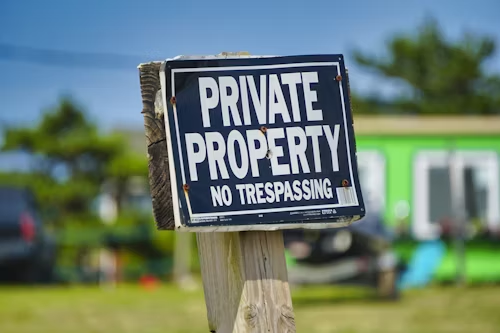Understanding Intellectual Property (IP)
In today’s interconnected global marketplace, protecting intellectual property (IP) is more crucial than ever. IP encompasses creations of the mind, such as inventions, literary and artistic works, designs, symbols, names, and images used in commerce. This blog explores effective strategies to safeguard your IP in the face of international challenges.
Conducting a Comprehensive IP Audit
Before venturing into global markets, conduct a thorough IP audit. Evaluate all your intellectual assets—patents, trademarks, copyrights, and trade secrets. Identify strengths, weaknesses, and potential vulnerabilities. This proactive step ensures you understand what needs protection and where your IP might be at risk.
Securing International IP Rights
1. Patents
Patents protect inventions and innovations. Seek international patent protection through treaties like the Patent Cooperation Treaty (PCT) or file directly in each country of interest. Understand local laws and regulations to navigate the complexities of global patent protection.
2. Trademarks
Trademarks distinguish your brand from competitors. Register trademarks in key markets and consider the Madrid System for international protection. Monitor and enforce your trademarks to prevent infringement.
3. Copyrights
Copyrights protect original works of authorship. Register copyrights where possible and understand local copyright laws to protect your creative works globally.
4. Trade Secrets
Safeguard trade secrets through confidentiality agreements and restrictive covenants. Implement robust internal protocols to maintain secrecy, especially when engaging with international partners and suppliers.
Implementing Contracts and Agreements
1. Licensing Agreements
When expanding internationally, use licensing agreements to grant rights to use your IP while retaining control. Clearly outline terms, territories, and enforcement mechanisms to mitigate risks.
2. Joint Ventures and Collaborations
In joint ventures or collaborations, define IP ownership and usage rights upfront. Draft agreements that address IP rights, confidentiality, and dispute resolution to protect your interests across borders.
Enforcing Your IP Rights Globally
1. Monitoring and Detection
Regularly monitor markets for unauthorized use of your IP. Utilize technology and legal expertise to detect infringements promptly.
2. Cease and Desist
Issue cease and desist letters to infringers promptly. Understand local enforcement procedures and work with legal counsel experienced in international IP litigation.
3. Alternative Dispute Resolution
Consider alternative dispute resolution methods, such as arbitration or mediation, to resolve IP disputes efficiently across borders.
Adapting to Cultural and Legal Differences
1. Cultural Awareness
Respect cultural differences that impact IP perceptions and enforcement. Tailor strategies to local norms while maintaining global standards of protection.
2. Legal Expertise
Partner with local attorneys who specialize in IP law. They provide insights into local regulations and help navigate complexities in each jurisdiction.
Educating Employees and Partners
1. Internal Training
Educate employees about the importance of IP protection and security measures. Implement policies that emphasize confidentiality and compliance with global IP laws.
2. Supplier and Partner Agreements
Include IP protection clauses in contracts with suppliers and business partners. Ensure they understand and adhere to your IP policies and practices.
Conclusion
Protecting your intellectual property in the global marketplace demands foresight, diligence, and strategic planning. By conducting comprehensive audits, securing international rights, implementing robust contracts, enforcing rights diligently, and adapting to cultural and legal nuances, you can safeguard your innovations and creations worldwide. Stay proactive, informed, and vigilant to preserve your competitive edge and maximize the value of your intellectual assets on the global stage.
FAQs About Protecting Your IP in the Global Marketplace
1. What is intellectual property (IP)?
Intellectual property (IP) refers to creations of the mind, such as inventions, literary and artistic works, designs, symbols, names, and images used in commerce. It encompasses patents, trademarks, copyrights, and trade secrets.
2. Why is it important to protect IP in the global marketplace?
Protecting IP in the global marketplace is crucial to safeguard innovations, maintain competitive advantage, and prevent unauthorized use or exploitation by others. It ensures that creators and innovators can benefit from their creations and investments.
3. How can I protect my patents internationally?
You can protect patents internationally by filing through the Patent Cooperation Treaty (PCT) or filing directly in each country where protection is sought. Understanding local patent laws and regulations is essential for effective global patent protection.
4. What is the Madrid System for trademark protection?
The Madrid System is a convenient and cost-effective way for trademark owners to obtain and manage protection for their marks in multiple countries through a single application. It simplifies the process of international trademark registration and management.
5. How can I enforce my IP rights globally?
Enforcing IP rights globally involves monitoring markets for infringements, issuing cease and desist letters to infringers, and pursuing legal action through international litigation or alternative dispute resolution methods like arbitration or mediation.
6. What steps should I take to protect trade secrets internationally?
To protect trade secrets internationally, implement strict confidentiality measures, use non-disclosure agreements (NDAs) with employees and partners, and ensure robust internal security protocols to maintain secrecy.
7. How do cultural differences impact IP protection?
Cultural differences can affect perceptions of IP rights and enforcement practices. It’s important to understand and respect local cultural norms while maintaining consistent global standards for IP protection and enforcement.
8. What should I include in IP clauses in contracts with suppliers and partners?
In IP clauses, specify ownership rights, usage permissions, confidentiality obligations, and dispute resolution mechanisms related to intellectual property. Clearly define expectations to prevent misunderstandings and disputes.
9. How can I educate employees about the importance of IP protection?
Conduct regular training sessions to educate employees about IP protection, security measures, and company policies regarding confidential information. Emphasize the role of each employee in safeguarding IP assets.
10. Why should I partner with local attorneys for international IP protection?
Local attorneys specializing in IP law provide invaluable insights into local regulations, enforcement procedures, and cultural nuances that impact IP protection. They help navigate complexities and ensure compliance with local laws.
These FAQs provide foundational knowledge on protecting intellectual property in the global marketplace. For specific legal advice tailored to your circumstances, consult with an experienced intellectual property attorney familiar with international practices.
